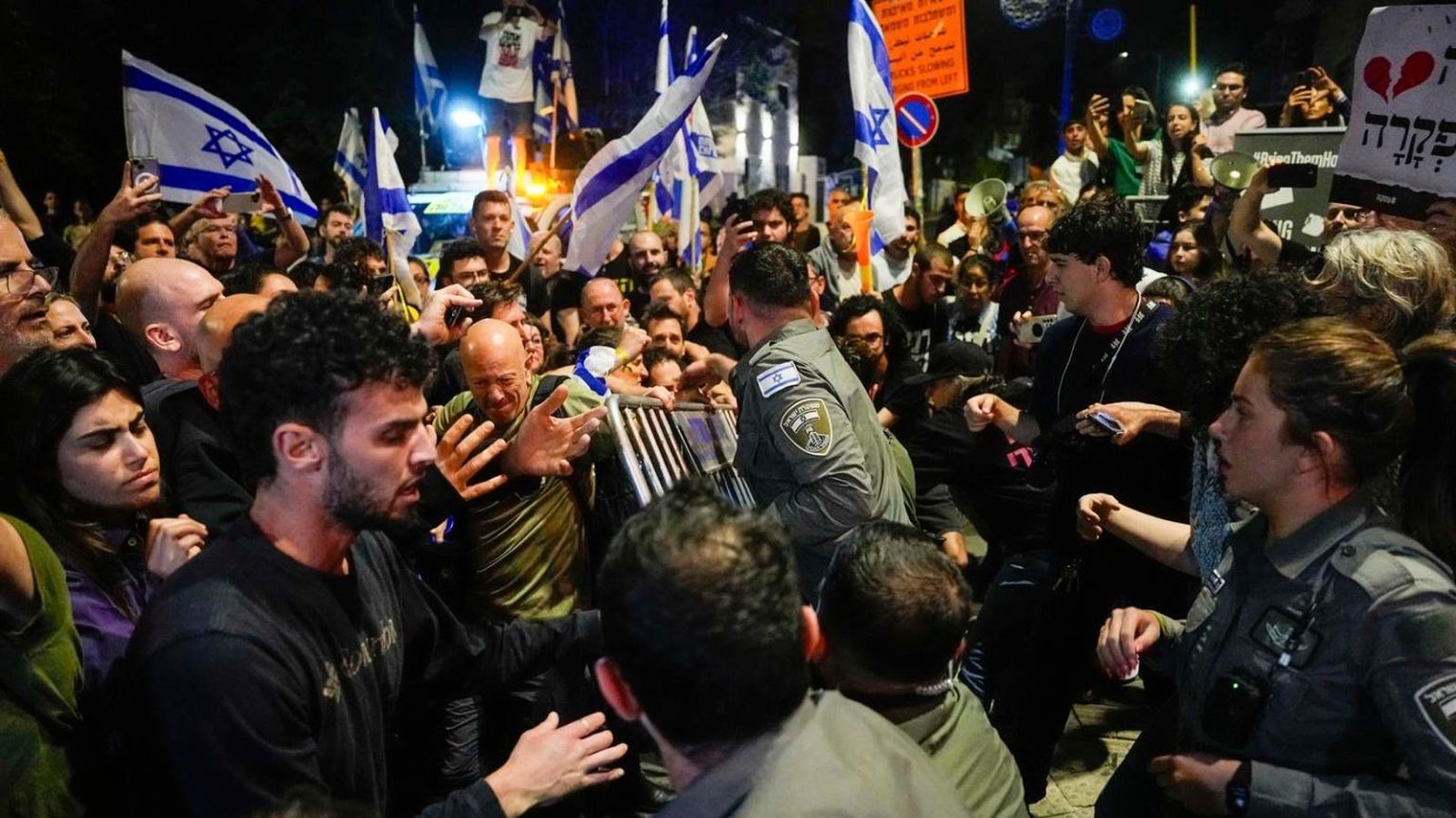Israeli Prime Minister Benjamin Netanyahu is facing mounting pressure in Israel over his handling of the Israel-Hamas War, with protests calling for his removal reaching the Israeli Parliament on Wednesday. Political rivals like Benny Gantz, who joined Netanyahu’s government after Hamas’ attack on Israel, are now calling for new elections in September, a year ahead of schedule. The protests, which have been ongoing for days, have seen thousands of citizens demanding new elections, efforts to secure the release of Israeli hostages held by Hamas, and Netanyahu’s resignation. Protesters even managed to breach security and vandalize the parliament building, urging the government to act on the hostage situation.
Yair Lapid, the centrist leader of the political opposition in Israel, responded to Gantz’s call for new elections by stating that the current government cannot wait another six months and criticized it as the “most dangerous and failed in the country’s history.” However, Netanyahu’s Likud Party accused Gantz of engaging in petty politics and argued that new elections would lead to paralysis during a time of war. Netanyahu, who was last elected in 2022 after briefly being ousted in 2021, has not yet responded to the calls for new elections, but has previously resisted such demands. He has also faced criticism from the U.S., with Senator Chuck Schumer calling for a new Israeli election, which Netanyahu deemed inappropriate.
Anti-government protests were already prevalent in Israel before the outbreak of the war, primarily due to Netanyahu’s plans to weaken the Supreme Court. The current wave of protests has reignited these sentiments, with Gantz’s National Unity party polling ahead of Netanyahu. The ongoing war has also brought global attention to Israel’s handling of the humanitarian aspect, particularly after an Israeli airstrike killed seven aid workers from the World Central Kitchen. There are still 130 hostages believed to be held captive by Hamas since the attack on October 7.
President Biden is scheduled to speak with Netanyahu on Thursday, following his condemnation of Israel’s actions in killing the aid workers. Tensions between the two leaders have been escalating, especially with Israel’s potential plans to invade the city of Rafah in Gaza, a move that aid organizations warn could lead to a humanitarian disaster. The situation in Israel remains volatile, with calls for new elections, protests demanding action on the hostage crisis, and international scrutiny over the handling of the conflict. Netanyahu’s leadership and the future of Israeli politics hang in the balance as the country navigates through these challenging times.


